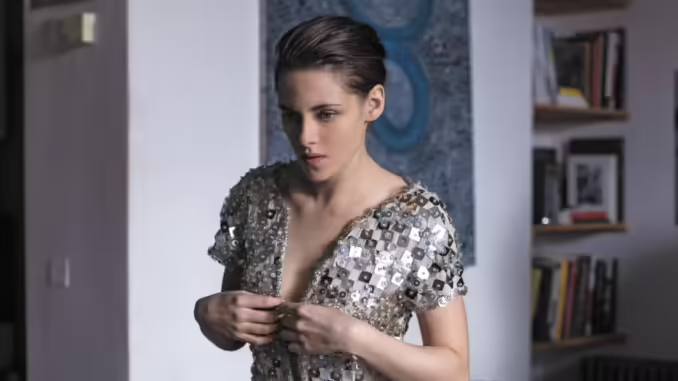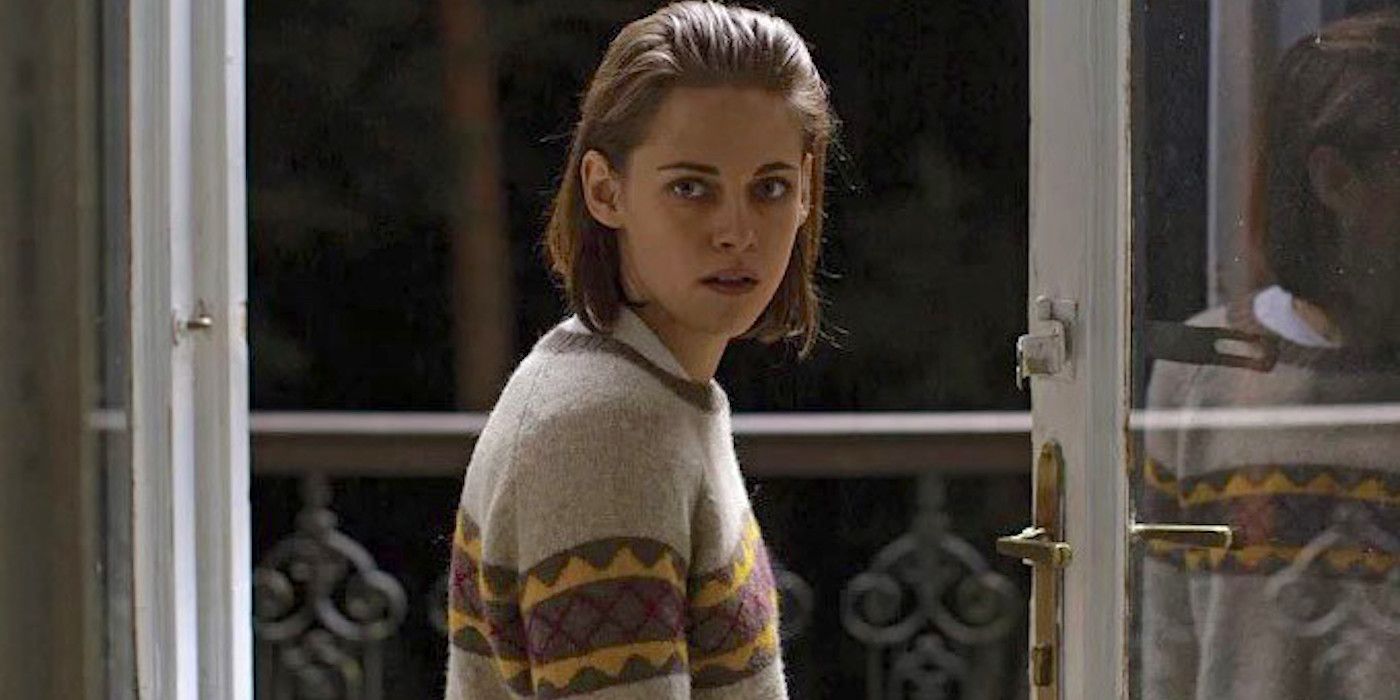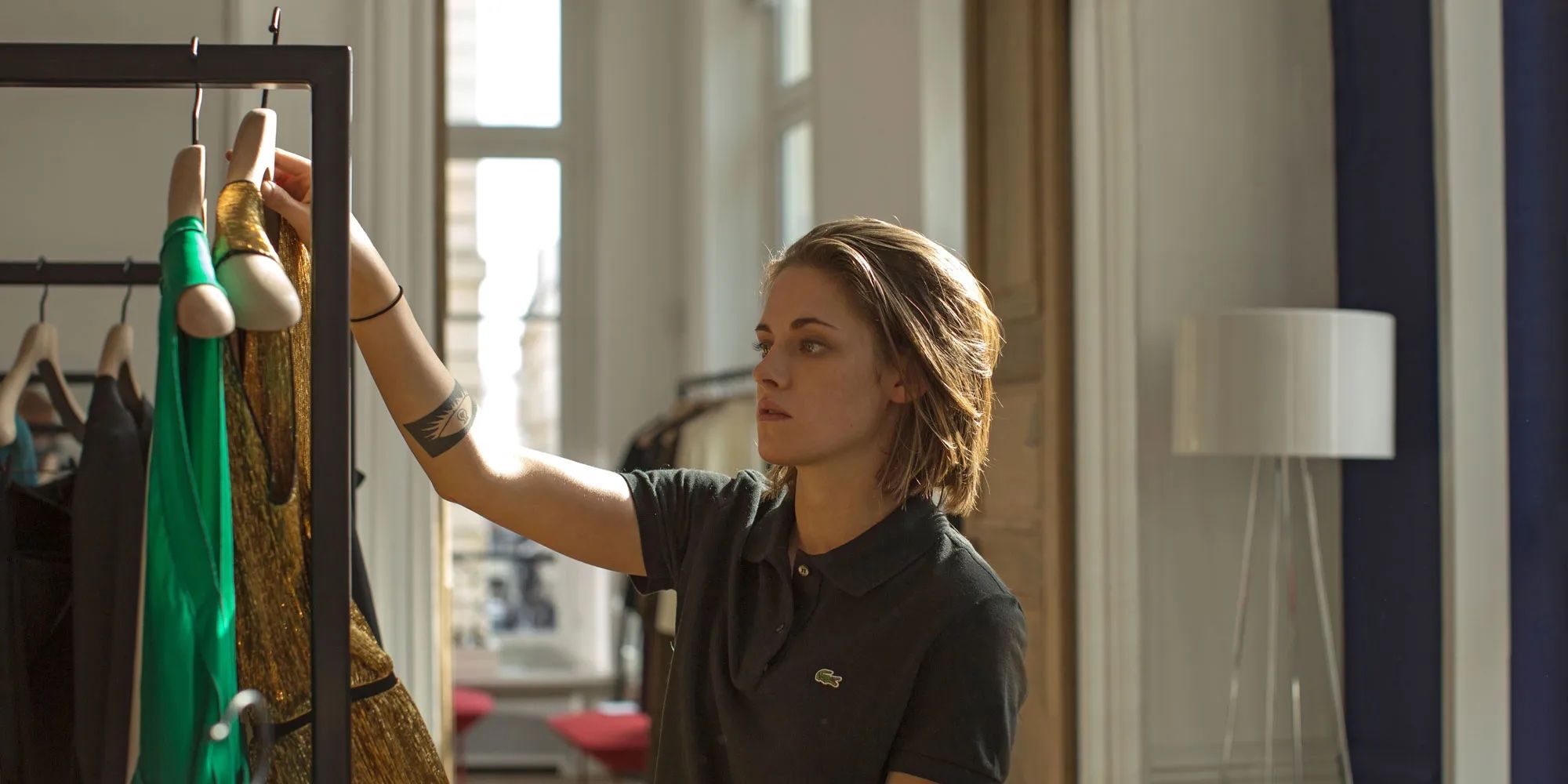
Don’t call it a comeback, because Kristen Stewart has been here for years. Some just needed time to catch up to the wavelength that Stewart has been on since gracefully dismounting her tenure as Bella Swan in The Twilight Saga — and it’s a glorious wave to ride. Looking back, her time doing that series served as a strange cul-de-sac that diverted from the clear path she was forging as a true unicorn: a bonafide movie star with a conviction and sensibility meant for independent cinema. She’s kept that passion for smaller-scale films going strong, with her upcoming Love Lies Bleeding and her efforts to get her directorial debut off the ground. Stewart has shown time and time again that she flourishes the most when in an environment with a lower frequency. This was best shown in the 2016 film Personal Shopper, a ghost story that transcends that label to become so much more than a spooky tale.
What is ‘Personal Shopper’ About?

Maureen (Stewart) is a woman trying to make a living in Paris by bouncing back and forth between jobs. She spends most of her time being a personal shopper for a supermodel, flitting around the streets on a scooter and buying lavish clothing and jewelry for her boss while she’s busy with more important work. Maureen’s real passion lies in being a medium, motivated by the connection she had with her deceased twin brother Lewis, as the two made a pact that when one of them dies, the other would send a message from beyond the grave letting them know they’re safe. Since Maureen has the same rare heart condition that killed her brother, she’s convinced she’s wasting her shortened life stuck with a job she hates and unable to move on from the phantom pain that her brother has left behind. Her efforts to contact her brother initially lead to nowhere, but when an unknown number starts texting her about knowing where she is at all times, she can’t help but wonder: could this be Lewis?
If that sounds like the start of a plot involving a vast conspiracy and ghostbusting, you may want to hold your breath. This is a film that announces itself in a whisper as a character study of existential terror, of holding onto hope to the point that it has started to poison you. Maureen spends most of this film so haggard and exhausted that she looks like an Elliot Smith fan wandering through an Eric Rohmer film, and yet she is still magnetic in her every motion due to the natural charisma that Stewart exudes. Director Olivier Assayas knows that she’s got the goods because he has the confidence to open his film with seven minutes of Stewart wandering around a dark house like it’s The Haunting, and that tells us this is a woman who is confident in her abilities yet so lost with what to do with those abilities. It’s clear from the start that she’s been trying to use her medium skills to contact Lewis for a while now, and she’s still utterly devoted to the promise she’s made, to a degree that makes her completely desperate. That desperation is tempered with genuine curiosity and self-reflective impulses that Maureen has, which perfectly matches Stewart’s brand of acting like she knows someone is always watching her.
Kristen Stewart Creates A Study on Forbidden Sensations

In a recent interview with Indiewire, Stewart discussed how the quality that drives all of her performances is desire, how it all “starts from a place of wanting, and also of wanting people to see that, to see the open mouth, someone that needs something, someone that’s searching for something…[it’s] exhibitionist-leaning.” Her use of the phrase “open mouth” is of particular note, as it hints towards the natural proclivities that she has become known for as an actor. Be it her dialogue delivery that tends to cut itself off, her restless sense of energy, and even her tendency to have her mouth open when she isn’t talking; all of these come together to become a person who can barely contain their inner needs.
This quality is what makes Maureen a perfect character for Stewart to play, as Maureen is a person who is quietly screaming out for what she’s missing, even when she’s going about her business as a personal shopper. She’s in serious need of a good cry, but she swallows it all as best she can, only allowing herself small moments when she lets all of her internalized pain and shame out. Stewart knows that the key to good crying isn’t letting it out, but in trying to keep it from coming out, and the moments when Maureen lets herself go are harrowing.
That emotional stultification speaks to the paradox of Maureen’s life, caught between the worlds of the living and the dead, and stuck in neutral. She claims to value “freedom” and regret when others don’t seem free, yet she’s so eager to be tied down to her brother’s memory. Even when contemplating moving on, she frames it as Lewis’ decision, saying “I wish he’d let me,” as she’s come to identify herself so closely with his loss. Her day job also speaks to this paradox, as she spends the majority of
her time in high-class establishments, buying lavish things while she’s still earning just enough to pay her rent. It’s not for nothing that a moment of character growth for her is trying on her client’s couture clothing and embracing the pleasure that it brings her, being able to permit herself to enjoy it. When texting with this ghost, she says that there’s “no desire if it’s not forbidden,” and it’s a perfect encapsulation of the dichotomous texture that Stewart injects into her best work. Speaking of texting, so many scenes are built around just Kristen Stewart closely watching a cell phone screen, and it’s a testament to her magnetism that these are some of the most riveting scenes of the film, turning this metaphorical ghost story into a Brian DePalma thriller.
‘Personal Shopper’ is a Perfect Demonstration of Stewart’s Skills
People often struggle to notice greatness when it’s right in front of them, usually because it takes on a form that people don’t recognize. Kristen Stewart was already blazing her trail by standing out in smaller films like Speak and Into the Wild, and those roles were much more indicative of her identity than her work as Bella Swan. Audiences and the media who’d never cared about her before watched her try to breathe any kind of life into a malformed caricature of teen angst and went “Yes, that must all be her fault.” They didn’t know or care about the larger context of her crusade to bring intimate authenticity to every role she inhabited, bringing to light the eternal dance between self-confidence and having to face a world that disrupts that confidence.
Time and time again, she’s portrayed women who must navigate how to remain true to themselves amid a world that doesn’t properly value them. She got an Oscar nomination for playing a version of Princess Diana who’s tormented by the trauma the royal family has inflicted on her in Spencer, but Maureen is the greatest instance of her living through an existential nightmare due to how much she can show the constant conflict of her emotions with so little demonstration. She understands the power of spiritual paralysis and knows how liberating it can feel to suddenly feel the desire to chase something that could finally give you what you need.